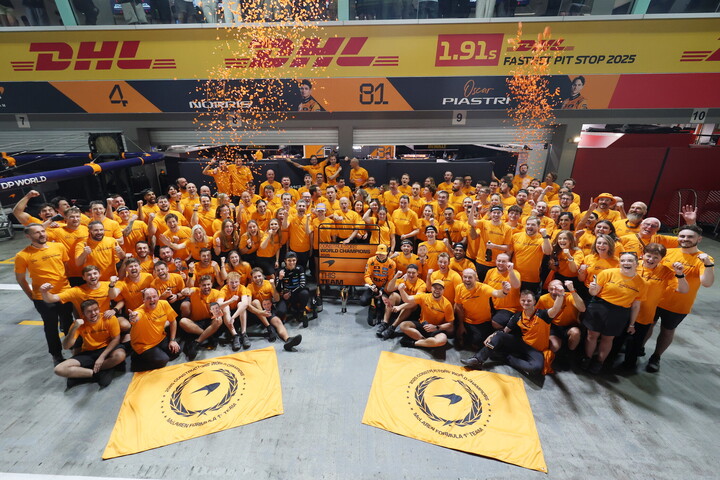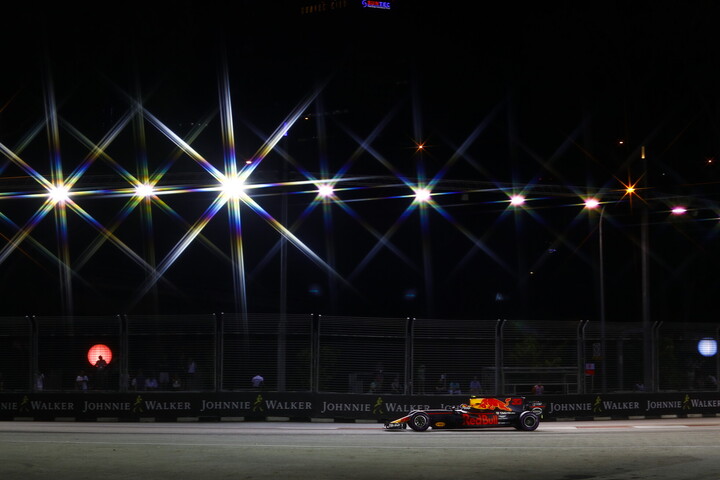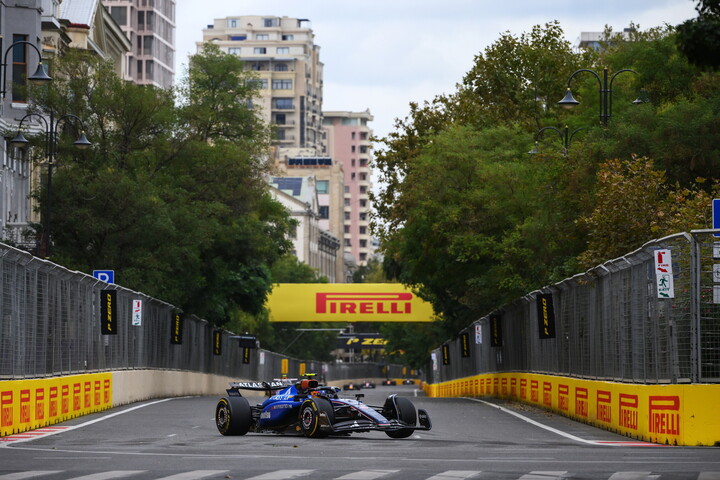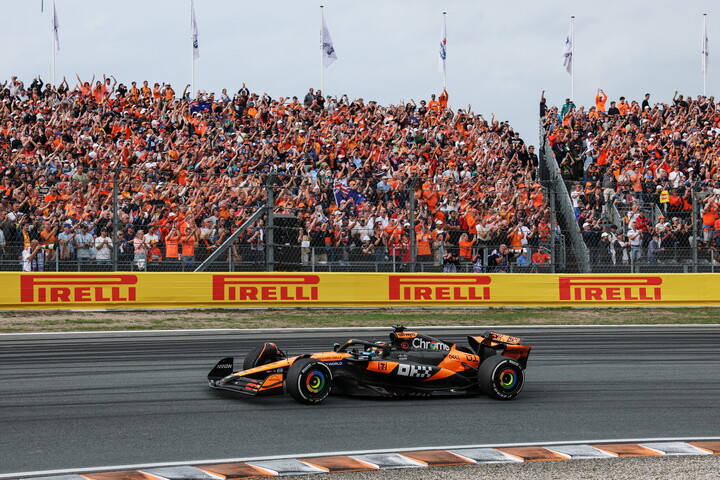Nostalgia and hope: Brazil waits for a new star

The Portuguese word “saudade” is central to Brazilian culture, meaning a deep and complex feeling of nostalgia, melancholy and desire. It is usually associated with the loss of someone or something no longer present, or of a moment of happiness that cannot be rekindled. “Saudade” goes beyond mere nostalgia, as it also conveys a sense of hope, intense emotions and an expectation, as if the distance or loss is combined with the hope of a return, no matter how unlikely.
If there is one sport in Brazil where “saudade” makes itself felt considerably, it is Formula 1. Seven seasons have passed since 2017, when a Brazilian last raced for a team fulltime, that being Felipe Massa who drove for Williams, while it's been 1,429 days since Pietro Fittipaldi made the last of his two appearances on the starting grid of a Grand Prix, at the wheel of a Haas in Abu Dhabi in 2020.
That statistic is quite shocking given how important Brazil is to Formula 1 and vice versa. Between 1970 and 2017, 27 Brazilians raced in Formula 1, totalling 778 Grand Prix starts between them. Three of their number accumulated eight world championship titles – two for Emerson Fittipaldi and three apiece for Nelson Piquet and Ayrton Senna, with 101 wins, 126 pole positions and 293 podium finishes. Brazil has therefore played an important role in the history of this sport, but it's years now since the Brazilian green and gold flag has been waved in the grandstands. And yet, as recently as 2010, hardly that long ago, there were four Brazilians on the grid – the aforementioned Massa, then with Ferrari, Rubens Barrichello at Williams, Lucas di Grassi at Virgin and Bruno Senna at HRT. From then on, they fizzled out and the presence of Emerson Fittipaldi's nephew Pietro, who was born in Miami with an American passport, as a reserve driver for Haas, was definitely not enough to keep the dream alive.
This is a problem for the sport in general, not just in Brazil, because the South American audience is very important. For many years, when the races were broadcast free to view on Rede Globo, Brazil had the biggest TV audience in the world, but since 2021, when the rights were acquired by TV Bandeirantes, which now has a contract up to 2025, that is no longer the case. To be clear, there is nothing wrong with the quality or quantity of broadcast hours, with Band TV providing excellent coverage, superior to that of Rede Globo, but the audience figures don't match those reached by commentator Galvao Bueno almost as famous as Murray Walker, both men acquiring legendary status beyond the borders of their own countries.

Undoubtedly, the lack of a Brazilian on the grid influenced Rede Globo to relinquish its F1 TV rights to a competitor. And while today, the sport is increasingly enjoyed through other platforms, especially social networks, not just on TV and the passion for it is still there, the TV audience is diminished and so too is the interest of potential sponsors, essential to bring on young drivers through the junior categories and take them to the top. It is effectively a vicious circle: there are no drivers, the audience drops, sponsors are hard to come by, talented youngsters do not progress, so none of them get to Formula 1. Strangely. Brazil's enthusiasm for Formula 1 has been partly kept alive by Lewis Hamilton who, not only is not Brazilian, but who also, 16 years ago on 2 November 2008 at the Interlagos track, deprived local hero Felipe Massa of becoming his country's fourth world champion, even if he thought the title was his for around 40 seconds.
“When Felipe retired, I was told that I should stop being a Formula 1 journalist because without a Brazilian driver, no one would be interested in the sport, and yet I am still here!” says Julianne Cerasoli, the only Brazilian journalist who attends all the Grands Prix. “It's true we don't have a driver, but it's equally true that Lewis wrapped himself in the Brazilian flag after he took one of the best wins of his career here in 2021. It aroused incredible emotions and it was as if he had become one of us. His connection with Brazil was always there, bubbling under, but that win saw it explode in an amazing way.”

It explains why, one year later, the Brazilian parliament made Lewis an honorary citizen and this Saturday, after qualifying, the crowd will no doubt be thrilled when the seven-time world champion drives the McLaren with which Ayrton Senna won the title in 1990. But it is still not the same as having a Brazilian driver back in Formula 1. As mentioned earlier, the word “saudade” contains an element of hope and in fact, right now that hope has a name – Gabriel Bortoleto.
He turned 20 just over a fortnight ago and he is Brazil's best chance of having a driver in F1. He won last year's Formula 3 title and, with two rounds remaining in Qatar and Abu Dhabi, currently leads this season's Formula 2 championship by 4.5 points ahead of France's Red Bull-backed youngster Isack Hadjar. Bortoleto is a product of the McLaren academy, but it's F1 line-up features two very young but now well-established drivers in Lando Norris and Oscar Piastri. The question therefore is where could Gabriel go next, especially as, if he wins the F2 series, he cannot race in it again. Increasingly, his name is being linked to Sauber, soon to become Audi, who have yet to announce who will partner Nico Hulkenberg next year.
On Thursday, in his home town of Sao Paulo, Bortoleto came in for high praise from two current Formula 1 drivers. “He's doing a great job,” said Oscar Piastri. “He won Formula 3 as a rookie and if he does the same in F2, he deserves to be in F1. I know what it's like not to find a seat and I hope that doesn't happen to him.” “If I was at Sauber, I would have already signed him up,” added Max Verstappen. “With the big changes to the regulations coming in two years time it's always best to get used to a team, make your mistakes here there, integrate with them and get to know the car. That way, you feel much more prepared and comfortable when it all restarts in 2026.”
Would it make a difference to Brazilians having Bortoleto on the grid in Melbourne, at the start of next season? “Definitely!” reckons Cerasoli. “You only have to look at what's happening in Argentina with Colapinto. Think about what could happen here in the near future…”




